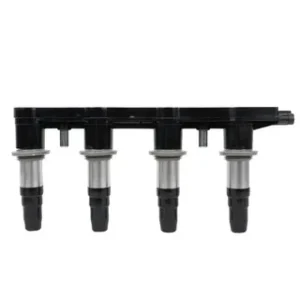When you hop into your Honda, the last thing you think is probably the alternator. Yet, this unassuming component is pivotal in keeping your Honda Car Alternator electrical system humming smoothly. Think of it as the unsung hero behind the scenes, tirelessly working to power everything from headlights to infotainment systems. Ignoring its importance could lead to some serious headaches down the road.
Whether you’re zipping around town or embarking on a long road trip, understanding how your Honda’s alternator functions can save you time and money. It’s not just about keeping those dashboard lights glowing; it’s about ensuring every electronic feature works seamlessly while driving. Let’s dive deep into what makes this part so crucial for your vehicle and why staying informed can make all the difference in maintaining optimal performance!
What is an Alternator?
An alternator is a key component in your Honda’s electrical system. It serves as the powerhouse, converting mechanical energy from the engine into electrical energy. This transformation ensures that all electronic accessories in your vehicle have the power to function properly.
Unlike a battery, which stores electricity, an alternator generates it while the engine runs. When you start your car, the battery begins by providing initial power. After that, it’s up to the alternator to take over and supply ongoing electricity for everything from headlights to air conditioning.
Typically located near the front of the engine bay, an alternator consists of several parts, including a rotor and stator. When your engine is running, the rotor spins inside the stator, creating electromagnetic induction—the magic behind its ability to generate electric current.
Most modern vehicles use three-phase alternators for efficiency. This design allows them to produce more power with less strain on both themselves and the car’s engine. This means smoother performance and longer-lasting components throughout your Honda’s electrical system.
Understanding what an alternator does can help you appreciate its value during regular maintenance checks or troubleshooting any issues related to your vehicle’s electrical functions. Keeping tabs on this vital part ensures you’re set for smooth rides ahead!
Role of the Alternator in the Electrical System
The alternator plays a vital role in your Honda’s electrical system. It acts as the heart, generating electricity to power various components throughout the vehicle. Without it, many essential systems would simply malfunction or fail.
Essentially, the alternator converts mechanical energy from the engine into electrical energy. This process ensures that your car’s battery remains charged while also supplying power to other electrical components such as headlights, radios, and dashboard instruments. When you turn on your ignition, this electricity keeps everything running smoothly.
Another key function of the alternator is maintaining a stable voltage level within the vehicle’s electrical system. It regulates output based on demand so that sensitive electronic devices aren’t damaged by too much power. This balance is crucial for modern cars filled with advanced technology.
Additionally, during acceleration or increased engine load, the alternator ramps production to meet rising energy demands. This responsiveness helps prevent dimming lights or sluggish performance when using multiple electronic features simultaneously.
Without a functioning alternator, you’d quickly rely solely on your car battery until it runs out of charge completely—leading to unexpected breakdowns and inconveniences down the road.
How the Alternator Works
The alternator is a vital component of your Honda’s electrical system. It converts mechanical energy into electrical energy using a rotating magnetic field to generate alternating current (AC). This conversion process begins when the engine runs and turns the alternator’s pulley via a belt.
Inside the alternator, there are key components: the rotor, stator, and diode rectifier. The rotor spins within the stator coils, driven by the same belt attached to your engine. As it rotates, it creates a magnetic field that induces an electric current in those coils.
This generated AC must be converted into direct current (DC) for use in your vehicle’s electronic systems. That’s where the diode rectifier is handy; it allows electricity to flow only one way, turning AC into DC power.
Once this conversion occurs, the voltage regulator ensures that your car receives consistent voltage levels despite various loads like headlights or air conditioning fluctuations. This regulation is crucial because too much power can damage sensitive electronics.
This process keeps your battery charged while powering everything from dashboard lights to infotainment systems. You risk encountering numerous electrical issues without proper function from your Honda car alternator.
Common Symptoms of a Failing Alternator
Several warning signs may indicate trouble when your Honda’s alternator starts to fail. One of the first symptoms you’ll notice is dimming lights. If your headlights seem less bright than usual or flicker while driving at night, it’s a clear signal that the alternator isn’t supplying enough power.
Another common symptom is strange noises coming from under the hood. A failing alternator can produce grinding or whining sounds as its bearings wear out. These noises often become more pronounced during acceleration and should prompt immediate attention.
You might also experience electrical issues with various car components. Power windows could move slowly, the radio may cut in and out, or dashboard warning lights might illuminate unexpectedly. All these issues stem from an insufficient power supply due to a malfunctioning alternator.
This is another red flag if you notice that your battery frequently dies or seems weak after being charged. An unreliable alternator fails to keep the battery fully charged over time, leading to repeated jump-starts and ultimately leaving you stranded.
If your Honda exhibits unusual smells—like burning rubber—it could be a sign of serious problems within the alternator itself. This odour typically indicates overheating parts struggling to function properly. Ignoring any of these symptoms can lead to bigger headaches down the road.
Consequences of Alternator Failure
When your Honda car alternator fails, the consequences can be significant. The most immediate effect is that your vehicle will struggle to maintain power. Without a functioning alternator, the battery won’t receive the necessary charge. This can lead to dimming headlights and electrical components acting erratically.
As time goes on, you may find yourself facing a complete breakdown. A dead battery means no start-up for your engine. If stranded in an inconvenient location, this could become a major hassle and expense. It’s not just about inconvenience; it can also put you at risk.
Another consequence is potential damage to other components of your electrical system. When an alternator malfunctions, it might send out fluctuating voltage levels, which could harm sensitive electronics within your vehicle, such as the ECU or infotainment system. Repairing these parts often requires specialized services and additional costs.
Additionally, frequent strain on the battery leads to its premature wear and tear. You might think replacing just one part solves everything; however, if both fail simultaneously or shortly after each other, you’ll spend more than anticipated.
Prolonged neglect of an alternator issue can also affect fuel efficiency. Your engine has to work harder when systems aren’t operating optimally, leading to higher fuel consumption over time, which ultimately impacts your wallet.
Regular Maintenance Tips of Honda Alternator
Regular maintenance is vital for keeping your Honda Alternator functioning optimally. One of the simplest yet most effective practices is checking the battery connections regularly. Ensure they are clean and free from corrosion. Tight connections help maintain a strong electrical flow, which supports the alternator’s performance.
Next, inspect the drive belt that connects to the alternator. Look for any signs of wear or fraying. A worn-out belt can slip or break, preventing your alternator from generating power efficiently. Replacing it at regular intervals can save you from unexpected failures down the road.
Also, pay attention to electrical components in your vehicle that draw power from the alternator. If not monitored properly, excessive use of headlights, radio systems, and other accessories can strain your alternator. Use these features judiciously when possible.
Another helpful tip is scheduling periodic professional inspections of your vehicle’s electrical system. Mechanics often have specialized tools to assess whether everything functions as it should—including voltage output levels from your Honda car alternator.
Watch for any warning lights on your dashboard related to charging issues or battery problems. Addressing these alerts early prevents more severe complications later and helps extend battery life and overall vehicle performance.
Upgrading Your Alternator: When and Why
Upgrading your Honda car alternator can be a smart move for various reasons. The stock alternator might not provide enough power if you’ve modified your vehicle, such as adding high-powered audio systems or off-road lights. These upgrades draw more current than a standard alternator can handle, which could lead to electrical issues down the line.
Another reason to consider an upgrade is if you’re experiencing dimming lights or erratic dashboard readings. These symptoms often suggest that your existing alternator struggles to meet demand. A higher-capacity alternator ensures steady voltage and optimal performance under load.
If you frequently drive in extreme conditions—like towing heavy loads or navigating rough terrain—an upgraded model designed for durability can make all the difference. It provides better reliability and longevity than factory-installed units, especially when faced with challenging driving situations.
Additionally, some drivers choose to upgrade simply for peace of mind. A more powerful alternator protects against unexpected failures while on the road. Knowing that your vehicle’s electrical system has ample support allows you to enjoy longer trips without worry.
Always consult professionals before making any changes. They can help you find compatible options tailored to your Honda model and ensure a smooth installation.
Conclusion
Understanding the importance of the alternator in your Honda is crucial for maintaining a reliable electrical system. This component is vital in ensuring that all electronic systems function smoothly. Without it, many features we often take for granted would falter.
Regular checks and maintenance can help extend the lifespan of your car’s alternator. By being proactive, you mitigate potential issues before they become costly repairs or inconvenient breakdowns. Simple visual inspections can go a long way.
If signs point to an aging or failing alternator, addressing those concerns promptly is key. Ignoring warning signs affects vehicle performance and can lead to more extensive damage elsewhere in your car’s electrical framework.
When considering upgrades, consider how enhanced performance might benefit you, especially if you frequently use additional accessories that draw power from the electrical system. Researching options tailored for Honda models ensures compatibility and efficiency.
Being informed empowers you as a driver to make smarter choices regarding your vehicle’s care. A well-maintained alternator contributes significantly to overall driving safety and comfort while enhancing your Honda’s longevity on the road.
FAQs
What is an alternator in a Honda?
An alternator is a crucial part of the vehicle’s electrical system. It generates electricity to power all electronic components and recharge the battery while the engine runs.
How can I tell if my Honda car alternator is failing?
Common symptoms include dimming headlights, strange noises under the hood, or warning lights on your dashboard. If you notice these signs, it’s essential to have your alternator checked promptly.
Can I drive with a bad alternator?
It’s not advisable to drive with a failing alternator as it can lead to a complete loss of power and may leave you stranded.
How often should I maintain my Honda car’s electrical system?
Regular maintenance checks every 6 months are recommended. This helps catch any potential issues before they escalate into serious problems.




